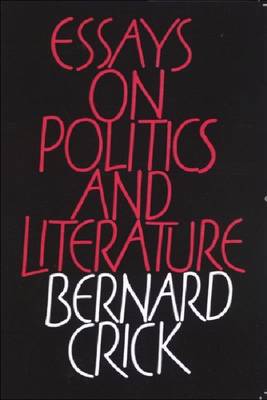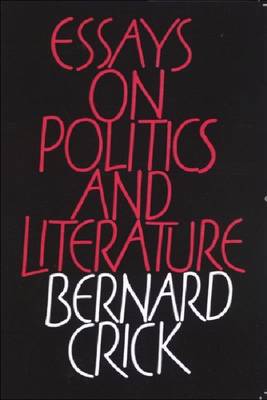
- Afhalen na 1 uur in een winkel met voorraad
- Gratis thuislevering in België vanaf € 30
- Ruim aanbod met 7 miljoen producten
- Afhalen na 1 uur in een winkel met voorraad
- Gratis thuislevering in België vanaf € 30
- Ruim aanbod met 7 miljoen producten
Zoeken
Omschrijving
This lively collection of essays gives a non-technical, but profound analysis of the essential relationship between politics and literature. Bernard Crick shows how 'political theatre' is often both bad theatre and simplistic politics, but how good producers can bring out political messages in such seemingly 'unpolitical' dramas as Twelfth Night. The essays begin with general themes, including a vigorous critique of RSC and NT producers' views of the political, and a denial of the myth that the far left dominated 1930s writing. They then move on to an analysis of George Orwell and finally to celebrate specific occasions and events in modern British theatre. With his refreshing disrespect for over-ornate and overly scholastic Marxist and academic writers, Professor Crick's book will be of interest to all those concerned with the arts and the theatre, as well as political philosophers and English literature students.
Specificaties
Betrokkenen
- Auteur(s):
- Uitgeverij:
Inhoud
- Aantal bladzijden:
- 238
- Taal:
- Engels
Eigenschappen
- Productcode (EAN):
- 9780748601059
- Verschijningsdatum:
- 1/01/1990
- Uitvoering:
- Paperback
- Formaat:
- Trade paperback (VS)
- Afmetingen:
- 139 mm x 214 mm
- Gewicht:
- 385 g

Alleen bij Standaard Boekhandel
+ 281 punten op je klantenkaart van Standaard Boekhandel
Beoordelingen
We publiceren alleen reviews die voldoen aan de voorwaarden voor reviews. Bekijk onze voorwaarden voor reviews.











